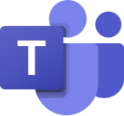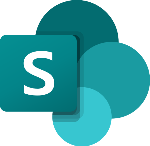Business Intelligence in healthcare industry is paving the way for remote healthcare and offer benefits of improved patient safety and management to reduced costs, and increased revenue to better visibility into financial operations. From monitoring cash flows to remaining compliant, the healthcare industry is moving into the data-driven world. And while, it’s only the beginning, BI is no longer an option for healthcare. It’s a necessity.
The major benefits of Business Intelligence in healthcare industry include:
1.Better and faster decision-making
3.Patient care and satisfaction
1. Better and faster decision-making: Healthcare professionals from different departments often need to collaborate in critical cases. However, their collaboration, subsequent decision-making and treatment, sometimes get delayed due to the unavailability of resources, especially of equipment, facilities as well as complicated system operations. In critical cases, easy and quick access to patient’s insights on a centralized BI portal can aid swift collaboration among various departments, decision-making, ultimately expediting patient care. Fluid visualization provided with BI in healthcare industry can make it easier to derive value from patient’s historical data and therefore, provide elevated care.
2. Improved risk management: With the complete patient history on system, based on their clinical, social and hereditary metrics, Predictive Analytics enables healthcare institutions to pre-empt potential medical challenges patients would face. This helps them to take timely precautionary measures to mitigate the impact. For instance, Washington State Health Care Authority leveraged BI to electronically integrate and distribute patient data across ER departments and significantly reduced consecutive ER visits for many patients.
3. Patient care and satisfaction: It can be troublesome for patients and their families to not have clarity of their medical condition, appear for redundant tests and spend extensively on the treatment. A BI application can collate all reports and present them in a visual format, providing detailed insight on every aspect of the patient’s health. This eliminates the requirement of repeated tests which in turn, helps to save money. Moreover, with patient data becoming so comprehensive and detailed, physicians will be able to provide individual patient care, thereby boosting patient satisfaction, rather than continuing with a one-size-fits-all approach with business intelligence in healthcare industry.
4. Better cost management: One of the major contributors to escalating hospital costs is patient variation and waste associated with treatment. In an attempt to reduce cost of patient care and cut wastage, healthcare providers now turn to data analytics. A healthcare enterprise data warehouse (EDW) organizes a health system’s clinical, financial, patient satisfaction and administrative data into a single source of reliable information that helps to take a data-drive path of cost management. With all the data available at one place, tasks like costing and billing become free of errors and variables can also be easily calculated.
Implementing the right Business Intelligence solution can enable overall improvement of a healthcare organization by improving productivity and efficiency across departments including patient care, administration, financial and labor. It can also help healthcare providers be agile and responsive by supporting fast and critical decision-making and driving collaboration across departments. With the healthcare BI platform market expected to exceed USD$3.9bn by 2023 growing at a CAGR of more than 11% in the given forecast period 2015 to 2023, there’s no doubt that more and more businesses will continue to adopt BI to build a reputation around optimal patient care.
















































